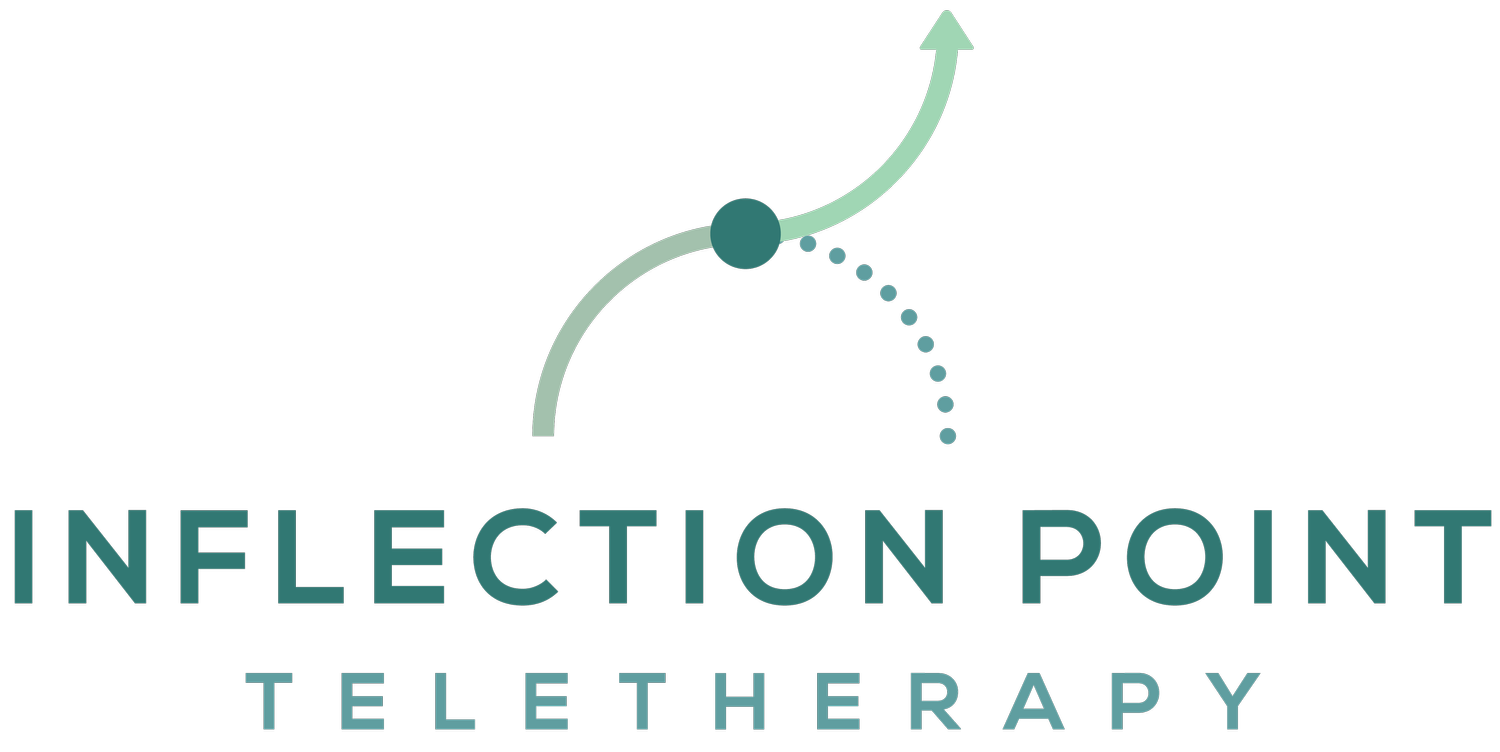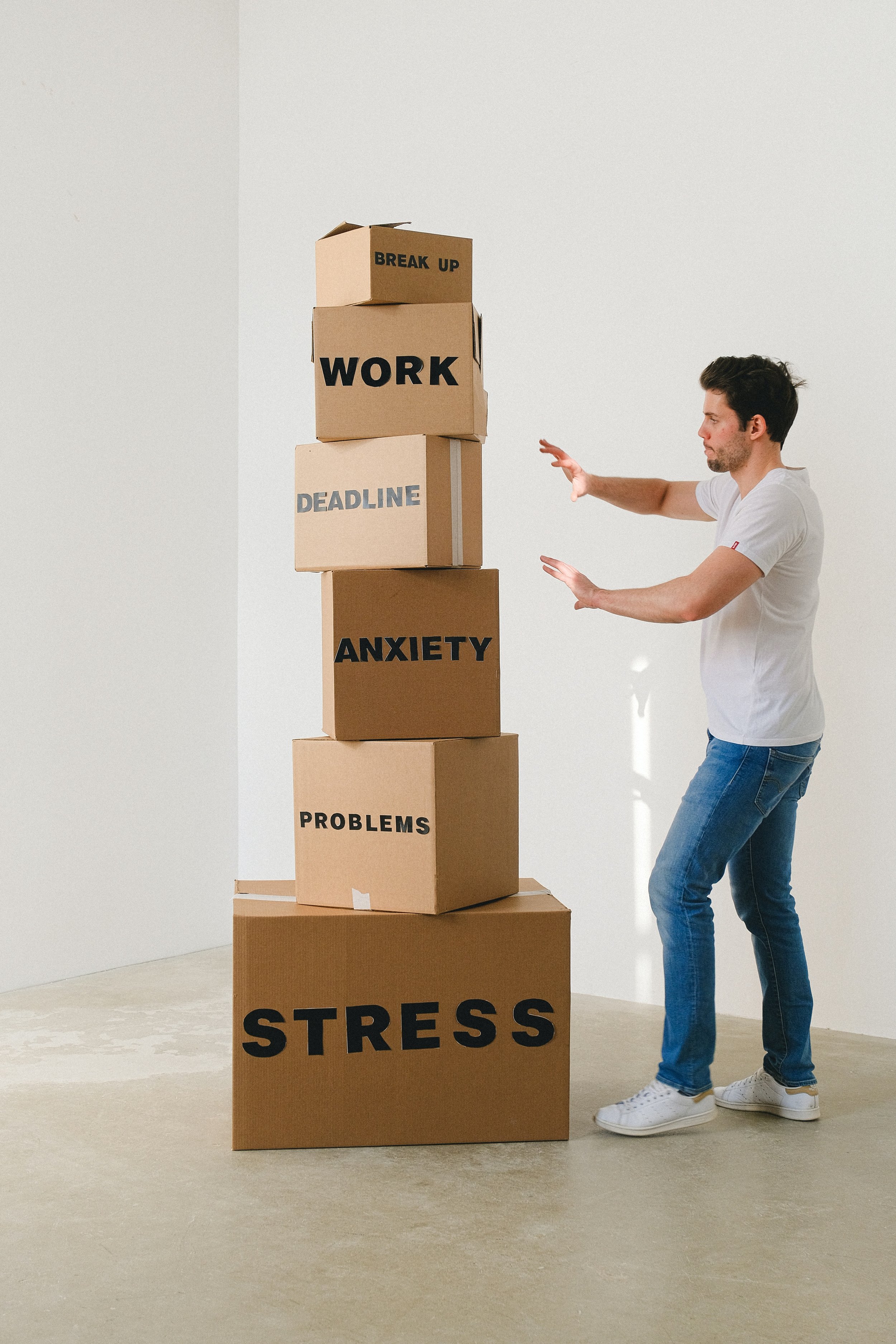
Anxiety
“In an era of stress and anxiety, when the present seems unstable and the future unlikely, the natural response is to retreat and withdraw from reality, taking recourse either in fantasies of the future or in modified visions of a half-imagined past.”
― Alan Moore, Watchmen
Anxiety Therapy
Is it difficult to relax with all the racing thoughts in your head? Is it affecting your sleep at night as you keep going over your day? Do you wake up, consumed by the expectations of your day?
You may feel separated from your body and off balance, always scared of disappointing people. Life has become heavy, and you don’t feel happy or relaxed like you did before. You might isolate yourself or lose connections with people because you pick up all of the anxiety triggers surrounding you. You might find yourself thinking of all of the worst-case scenarios. The good news is that it’s possible to feel better with the help of a trained therapist who specializes in treating anxiety.
You're Not Alone
Today, anxiety is the most common mental health issue in the US and is one of the most common reasons people to go to a therapist for help. In fact, an estimated 31.1% of U.S. adults experience an anxiety disorder at some time in their lives, while an estimated 19.1% of U.S. adults had an anxiety disorder in the past year.
Anxiety is so prevalent these days for a variety of reasons. No doubt compounded by recent large scale events such as COVID-19, political turmoil, and economic uncertainty. Further, a fast-paced lifestyle makes us constantly hurry from one task to the next without taking time to relax; a chaotic routine exacerbated by technology and social media. Perhaps you find yourself contrasting your life to social media friends or ‘influencers” - posts often simply crafting a carefully curated look into a lifestyle that is unattainable. The constant pressure and concern about not being ‘good enough’ can lead to anxiety. More, algorithms written to drain your attention throughout the day take advantage of outrage, fear and worry to do so.
Anxiety Can Be Healthy
Anxiety is a completely normal, human feeling. It was created to help people react to threats in a useful way so that we can be safe. With a little help, you can regain command of your anxiety and use it in a way that helps you instead of holding you back. The first step is knowing what anxiety is and how it functions.
What is Anxiety?
Being anxious is simply part of how our bodies are wired, and anxiety keeps us secure by helping us stop and check our environment. Feeling anxiety helps us look out for possible threats. If you detect a possible danger, your body wants you to be on alert so you can protect yourself.
For example, if we were to come across a bear in the forest, the intense anxiety would drive us to react in order to survive. When anxiety becomes disorder, is when more and more relatively small stressors look like a bear - triggering that fight, flight or freeze feeling.
Simple put, for many who endure anxiety, your alarm sounds too frequently when there isn’t a good reason to be overly cautious. Anxiety therapists help their clients learn how to feel less anxious when there’s no need to be anxious.
Normal Anxiety Vs Chronic Anxiety
It’s usual to feel anxious when you exit your comfort zone or take on a new task – like earning that promotion or leaving a long-term, but harmful relationship. Where we get into trouble is when we avoid certain challenges that keep us stuck and not living the life we want to live.
It’s not feasible or even beneficial to reduce our anxiety to zero. We need a low to moderate level of anxiety (or stress) to help us achieve our goals. For example, anxiety tells us that we should study for that big test or prepare for the job interview.
Anxiety becomes a problem when it becomes life-restricting, stopping you from living a life that reflects your goals, desires, and values. Anxiety therapy can help you begin to feel unstuck and live life more genuinely.
The High Cost of Avoiding Your Anxiety
You may have been changing your habits to decrease your anxiety in the short run, such as steering clear of things that cause anxiety, that have heightened your anxiety in the long run. For example, if you have social anxiety and always feel judged and inadequate, you might start avoiding other people and circumstance where you must interact with others.
At first, these habits can alleviate anxiety. Suddenly, you’ll find avoidance has you stuck, and what used to be a helpful coping mechanism is now a restricting problem.
Does this sound like you?
• You delay so many opportunities that you miss out on life
• You constantly stress about being a liability to your partner or friends, but aren’t sure how to convey your needs.
• You turn to food, drugs, and alcohol to manage anxiety which leads to more problems
• Your anxiety appears as perfectionism that petrifies you to the point of not handling vital tasks
• You don’t want to disappoint anyone, so you keep trying to “push through” the stress and avoid relaxation.
• You second guess every social interaction and begin to avoid your friends, as well as interacting with new people
Anxiety FAQ
How Do I Know Anxiety Therapy Will Help?
It has been shown that therapy is beneficial for people managing anxiety. Anxiety counseling is not a quick fix and requires a trained professional, but can lead to significant improvements in your quality of life. Getting help for your anxiety can be hard at first, but once you connect with a qualified anxiety therapist, your therapy might be your weekly sanctuary where you learn how to better manage your anxiety.
Do I Have To Be On Medication And Go To Therapy?
Occasionally medication can be beneficial if anxiety is triggered by a chemical imbalance. But it isn’t always needed, and many of my clients manage their anxiety just with therapy. Together, we can talk about various treatment choices and choose the best method for your needs.
How Do We Get Started?
That’s easy! Just click on the button below, or go to our contact page to schedule a free 15 minute phone consultation. We’ll discuss what you are looking for help with, and see if we are the right people to help you. We’ll also answer any questions you may have. You can schedule your free phone call anytime.
Reach out today
You can break free of fear and anxiety. To find out more about anxiety therapy, contact us to schedule a free 30 minute phone consultation.

“Anxiety was born in the very same moment as mankind. And since we will never be able to master it, we will have to learn to live with it—just as we have learned to live with storms.”
― Paulo Coelho, Manuscript Found In Accra

